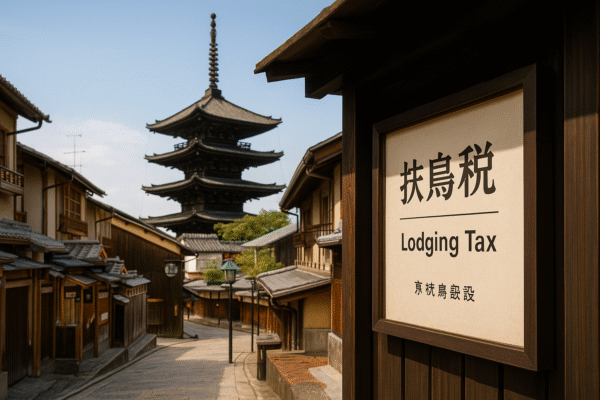As Japan experiences a remarkable rebound in visitor numbers, local governments are turning to lodging taxes as a strategic solution to fund tourism infrastructure and preserve cultural and environmental assets. According to a recent Kyodo News poll conducted between June and July, 92 of the nation’s municipalities—nearly 96% of all local governments—have at least considered introducing such taxes on hotel and ryokan accommodations. Of these, 42 have already taken action or plan to impose levies, signaling a notable shift in regional tourism policy.
To enact a lodging tax, municipalities must pass local ordinances and gain approval from Japan’s Minister of Internal Affairs and Communications. By the end of July, 35 municipalities had secured this approval, with 12 already collecting the tax and another 23 expected to launch by 2026. Seven more are actively drafting proposals. Meanwhile, 728 municipalities remain interested, while 506 are currently not considering lodging tax measures. Sixty had considered but dropped the concept, and 296 cited other reasons—often citing a lack of suitable accommodations.—
Strategic Intent and Revenue Uses
The primary objectives behind introducing lodging taxes include boosting tourism facilities, promoting regional attractions, preserving historical landscapes, and improving amenities for international visitors. According to the survey, 537 municipalities identified tourism facility development as the top priority, followed by general tourism promotion (434), heritage preservation (242), and visitor-focused infrastructure upgrades (228).—
Leading Examples Across Regions
- Kyoto is set to significantly increase its lodging tax beginning in March 2026. The revised tiered structure will see taxes rise from ¥200–1,000 to as much as ¥10,000 per night for ultra-luxury accommodations, while moderate increases apply to mid-tier stays. This change reflects Kyoto’s need to manage overcrowding and fund congestion-relief efforts at its iconic temples and neighborhoods. Already home to a graduated tax system since 2018, the city now aims to double its lodging tax revenue as tourism surges.
- Atami, a renowned onsen resort town in Shizuoka Prefecture, began collecting a flat rate of ¥200 per guest per night on April 1, 2025. The city anticipates generating around ¥600 million annually, supporting its Destination Management Organization (DMO) and funding promotional campaigns and infrastructure. While local accommodations received advance notice and promotional materials, some residents have raised concerns about the tax applying uniformly to all guests, rather than distinguishing between foreign and domestic visitors.
- Nasu Town in Tochigi Prefecture plans to introduce a lodging tax in fall 2026. The proposed six-tier flat-rate system ranges from ¥100 for stays under ¥10,000 to ¥3,000 for ultra-luxury stays over ¥100,000. The town expects ¥300 million annually and aims to invest funds in local tourism services, environmental conservation, and transportation improvements. Youth and school groups are set to be exempt, and businesses may receive support to upgrade their POS systems to accommodate tax collection.—
Expanding Adoption Nationwide
Beyond these areas, approval has been granted for lodging taxes in nine cities and two prefectures—including in Miyagi and Hiroshima, as well as in Hokkaido’s tourist towns Otaru and Akaigawa, Gifu’s Gero, and Shimane—bringing the total number of areas with approved lodging taxes to 24. These taxes will range from ¥100 to ¥500 per person per night, depending on the locality. Additionally, new accommodation tax structures are planned in destinations such as Takayama (Nagano Prefecture), Sendai (Miyagi Prefecture), and Sapporo (Hokkaido), signaling broader uptake across tourist hotspots.
Nationwide, major cities like Tokyo and Osaka established lodging taxes in 2002 and 2017 respectively, and other municipalities—including Kyoto, Nasu, and Niseko—have followed suit, setting rates according to local tourism dynamics.
Balancing Growth and Sustainability
Japan welcomed a record-setting 33.4 million visitors from January through November 2024, with rising concerns about overcrowding and infrastructure strain. Lodging taxes offer a targeted mechanism to channel tourism-generated revenue into capital improvements, heritage conservation, and service enhancement—benefitting both visitors and local communities. Importantly, municipalities are designing tax systems with exemptions (e.g., for students) and tiered levies to ensure fairness across income levels.
As the country moves forward, transparent communication on how tax revenues are spent, especially for residents and small enterprises, will be critical to maintaining public support. When implemented thoughtfully, lodging taxes can empower regions to preserve their cultural identity while inviting a growing number of visitors to experience Japan’s remarkable destinations sustainably.
For more travel news like this, keep reading Global Travel Wire


















